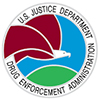 (Feb. 23, 2024) – Electronic prescribing, originally intended to deter prescription fraud and abuse, is now the target of bad actors sending fraudulent prescriptions to pharmacies. The Drug Enforcement Administration is sounding the alarm on the rise of e-prescribing fraud.
(Feb. 23, 2024) – Electronic prescribing, originally intended to deter prescription fraud and abuse, is now the target of bad actors sending fraudulent prescriptions to pharmacies. The Drug Enforcement Administration is sounding the alarm on the rise of e-prescribing fraud.
According to a DEA presentation during the Feb. 22, Kansas Board of Pharmacy meeting, criminals are stealing the identities of DEA registered providers, setting up fraudulent electronic health record accounts using the stolen identities and using the EHR account to issue fraudulent controlled substance prescriptions nationwide. The DEA stated in their presentation that currently the top three controlled substances fraudulent prescriptions are for are: promethazine with codeine, oxycodone and alprazolam. Mail theft and the dark web are common ways the identities of providers are stolen. The Kansas Board of Pharmacy detailed this growing problem in the March 2023 Kansas Board of Pharmacy Newsletter. According to the Kansas Board of Pharmacy, three components are required to confirm the prescriber’s identity: identity proofing, digital signature and two-factor authentication. However, because the e-prescribing software vendors are not highly regulated, identity proofing (confirming the prescriber's identity when setting up the software) has not proven to be as secure as necessary to avoid fraud.
If you discover fraudulent prescriptions, contact your law enforcement agency. They may request specific information such as whether the patient used an insurance card or discount card when picking up the medication, the SPI number on electronic prescriptions, the sender message ID on the prescription and whether a text message was sent when the prescription was ready for pickup. All of these items may help law enforcement identify bad actors. To help prevent identity theft, verify with your EHR vendor the quality and effectiveness of their identity proofing. Providers are also encouraged to utilize K-TRACS, Kansas' prescription drug monitoring program, to check their own prescription profile to detect any fraudulent prescriptions.
--Karen Braman